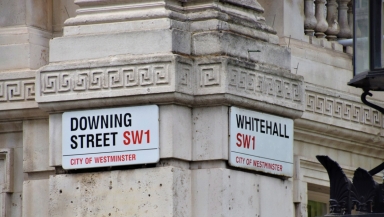
Christians are at risk of being branded 'extremists' under the government's new definition of extremism published this week, a campaign group has warned.
The new definition says that "extremism is the promotion or advancement of an ideology based on violence, hatred or intolerance, that aims to" among other things "negate or destroy the fundamental rights and freedoms of others".
Christian Concern said that Christians who are pro-life, gender-critical or have traditionalist beliefs about marriage may fall foul of the new definition.
"Christians who are pro-life could be seen as being opposed to an assumed 'fundamental right' to abortion and thus to be 'intolerant' and so extremist. It is already the case that being anti-abortion is on a Prevent list of ideologies seen as potential signs of extremism," the organisation said.
"Christians who are opposed to same-sex 'marriage' could also be seen as wishing to 'negate or destroy the fundamental rights and freedoms of others' and to be 'intolerant'."
Prevent is the government's counter-terrorism scheme that aims to stop individuals from becoming terrorists.
Christian Concern pointed to examples of Christians who have already been reported to Prevent for their beliefs, including school chaplain, Rev Dr Bernard Randall, who was referred over a sermon in which he told students they did not have to agree with LGBT ideology. In another incident, Christian teacher Svetlana Powell was reported to Prevent after saying "God loves you" to a lesbian pupil.
Christian Concern said that the new extremism definition was "vague" and could lead to genuine Christians being excluded from influencing government policy.
Andrea Williams, chief executive of Christian Concern, said the definition was "not fit for purpose" and that she expected to see more Christians being reported to Prevent.
"It is absurd that Christians could be deemed 'extremist' for believing in real marriage or for being pro-life," she said.
"Christian Concern has supported Christians who have been referred to Prevent for expressing their Christian beliefs. The new definition of extremism should have ensured that this would not happen again.
"Sadly, I now expect to see more referrals of Christians to Prevent, not less."
She called on the government to clarify that 'fundamental rights' do not include abortion, same-sex marriage or identifying as the opposite sex.
"Without this clarification, Christians who express their legitimate belief that marriage is between a man and a woman would risk being deemed 'extremist' by the government," she said.
"We urge the government to urgently clarify what 'fundamental rights' are intended in the definition of extremism."













